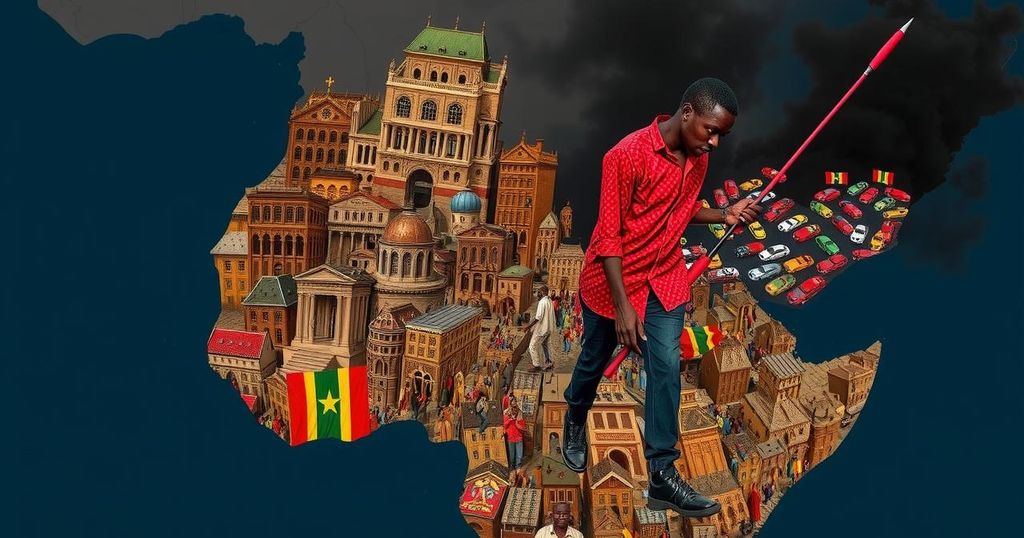World news
AFRICA, AP, AP FOTO, CARLOS U, CARLOS UQUEIO, DANIEL CHAPO, DEMOCRACY, DURANTE LAS, ELEC, EN MAPUTO, FR, HUMAN RIGHTS, JOHANNESBURG, LA CAPITAL DE MOZAMBIQUE, LEBOMBO, LLAMAS, MAPUTO, MOZAMBIQUE, POLITICS, SOUTH AFRICA, SOUTHERN AFRICA, SOUTHERN AFRICAN DEVELOPMENT COMMUNITY, UNA, VE, VENANCIO MONDLANE, VIOLENCE
Jamal Abdullah
0 Comments
Mozambique’s Post-Election Violence: Implications for Southern Africa
Mozambique is experiencing escalating protests following disputed election results, leading to violence and at least 30 deaths. The unrest raises significant concerns for Southern Africa, particularly due to the country’s role in regional trade and its historical context of conflict. The situation also underscores the challenges of ensuring credible elections in the region, amidst ongoing issues of migration and economic disruption.
Recent protests in Mozambique following the controversial results of the October 9 elections, in which the ruling Frelimo party extended its longstanding authority, have raised significant concerns for the Southern African region. The demonstrations, marked by violence resulting in at least 30 deaths, reflect discontent over alleged electoral irregularities, as claimed by observers from the European Union. Independent candidate Venancio Mondlane, who secured 20% of the votes, has led calls for nationwide protests opposing the election outcomes. The post-election turbulence in Mozambique poses a direct threat to political stability across Southern Africa, particularly as other nations in the region have made strides toward democratic governance. For instance, both Botswana and South Africa experienced shifts in power through relatively peaceful elections this year, contrasting sharply with Mozambique’s turmoil. The credibility of elections is crucial, as recent observations indicate that disputes like those in Mozambique may hinder regional unity and democratic progress. Moreover, Mozambique’s pivotal role in regional trade exacerbates concerns regarding instability. The nation shares borders with several countries, including South Africa and Tanzania, and disruptions within Mozambique can cascade into broader economic issues. Just recently, South Africa closed its border with Mozambique amid ongoing unrest, squandering approximately $555,177 daily in trade revenue and impacting critical mineral exports that pass through Mozambique’s ports. Lastly, Mozambique remains fraught with repercussions from its brutal civil war, creating an atmosphere ripe for renewed violence. The country continues to grapple with insecurity exacerbated by militant activities in the northern province and the return of displaced populations to devastated communities. Given these circumstances, the region must monitor developments closely to ensure collective political and economic stability.
The recent unrest in Mozambique stems from the disputed election outcomes, where the ruling Frelimo party won despite allegations of electoral malpractice. Following the elections, protests erupted in major cities, with demonstrators challenging the validity of the results. The atmosphere is tense as Mozambique’s historical context of violence and instability, including past civil war and ongoing militant conflicts, further complicates the situation. Such disturbances not only pose challenges for governance but also threaten regional dynamics, impacting trade relations and migration patterns.
In summary, the post-election violence in Mozambique signals profound implications for Southern Africa’s political landscape and trade stability. With the Southern African Development Community summit imminent, leaders must address Mozambique’s electoral integrity and explore comprehensive solutions to prevent the escalation of unrest. The situation highlights the fragile state of democracy in some Southern African nations and the pressing need for transparent electoral processes, economic cooperation, and regional security initiatives.
Original Source: apnews.com




Post Comment